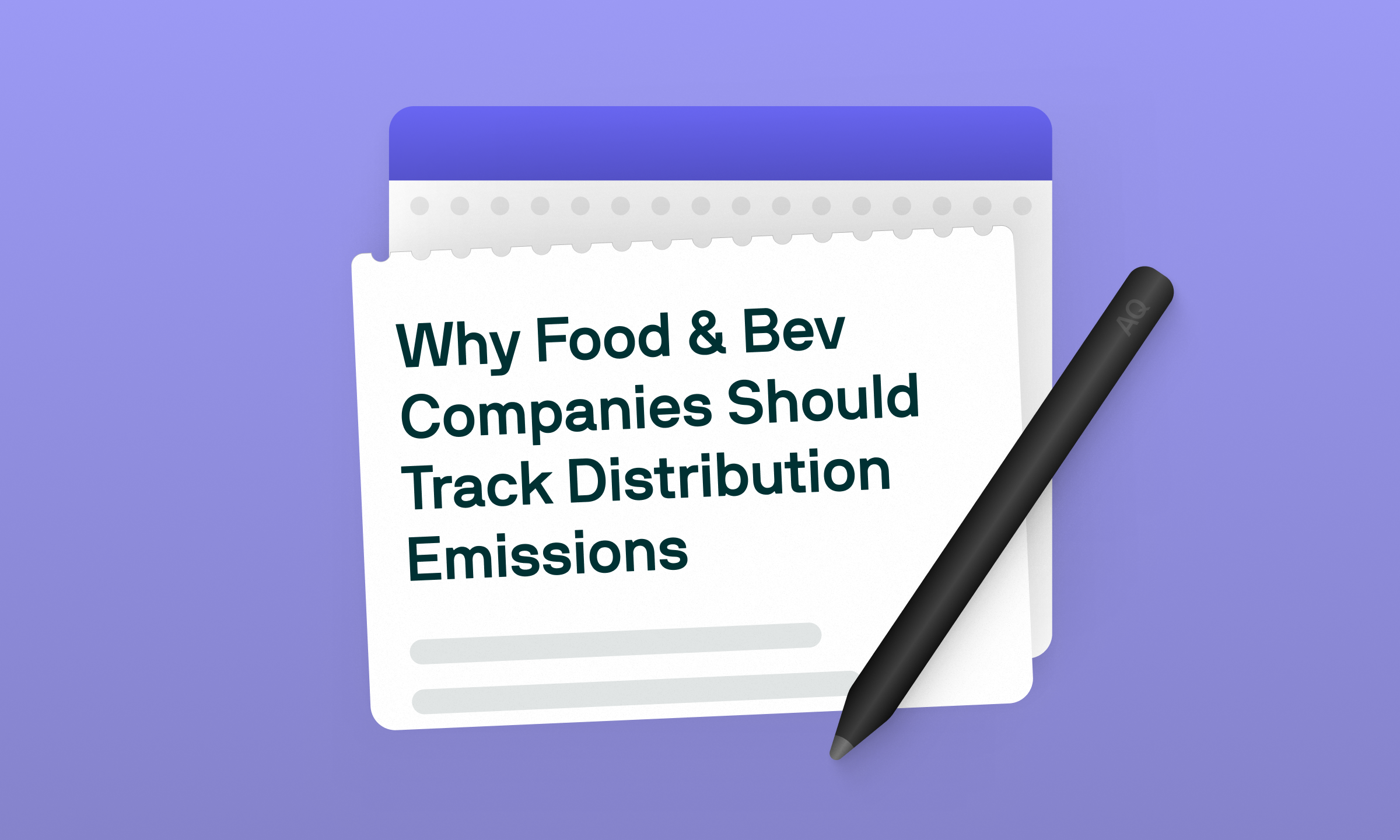What you'll learn



How Coffee & Cocoa Can Survive Climate Change
Imagine starting your day without coffee or never enjoying chocolate eggs at Easter again. This isn't just a scary thought. It's becoming a possibility as climate change threatens these delicate crops.
In our Earth Day series, we've explored how healthy soil fights climate change and how better water management can help turn the tide of rising temperatures. Now, we're looking at two special cultivations, coffee and cocoa, and how they're struggling to survive in our warming world.
A World Without Coffee and Cocoa
Coffee and cocoa trees naturally grow in similar conditions. Both need shade from tall forest trees, steady rainfall patterns, moderate temperatures, diverse ecosystems around them, and protection from strong winds.
But our growing appetite for these crops has changed how they're farmed. To produce more, farmers have moved many plantations out from forest shade into direct sunlight. This might increase short-term yields, but it makes the plants more vulnerable and lowers quality.
Clearing land for new plantations is driving deforestation at alarming rates, disrupting delicate ecosystems, degrading soil health, and accelerating biodiversity loss. These changes contribute to climate change, which then makes it harder to grow coffee and cocoa due to higher temperatures, unpredictable rainfall, and the spread of pests like coffee leaf rust.
Brazil, Vietnam, Colombia, and Indonesia have long been the capitals of our morning brew. However, due to climate change, experts predict that half the land currently suitable for coffee cultivation could become inhospitable by 2050.
Cocoa faces equally daunting challenges. Ghana and Côte d'Ivoire, which together produce 54% of the world's cocoa, are experiencing unprecedented shifts in rain cycles. The International Cocoa Organisation estimated a global rain shortfall of 462,000 tons in 2023/2024 alone.
These crops support millions of people's livelihoods. In Ethiopia, coffee contributes 60% of export earnings and supports 15 million people. In Ghana, cocoa accounts for 30% of export income.
A Complex Supply Chain
Coffee and cocoa share similar journeys before reaching the supermarket’s shelf. Both require extensive processing through a chain that includes farming, harvesting, fermenting, exporting, roasting, manufacturing, and packaging. This lengthy process generates several impacts:
- Deforestation: Coffee cultivation led to 557,000ha of forest loss from 2005 to 2018 (twice Luxembourg's size), while cocoa production cleared 732,000ha between 2001 and 2018 (twice the size of Sussex). In Côte d'Ivoire alone, approximately 90% of rainforests have disappeared since 1960 due to cocoa farming.
- Water Usage: Your typical morning coffee requires 140 litres of water to produce according to UN Food and Agriculture Organisation figures. Each kilogram of chocolate demands 10,000 litres.
- Emissions: The carbon footprint begins with land clearing, releasing stored carbon and reducing carbon sequestration capacity. Emissions continue through energy-intensive processing, transportation across continents, packaging production, and final disposal of packaging waste.
- Human Rights: These industries still struggle with severe human rights issues. Approximately 1.56 million children work on cocoa farms in Ghana and Côte d'Ivoire alone, with 40% being girls and around 30% missing out on education. The coffee and cocoa sectors also face challenges with forced labor, poor working conditions and living wage, gender inequality, and violations of Indigenous land rights.
🍫 What Does It Take to Produce One Chocolate Bar?
Was Charlie passing around a single chocolate bar with his grandparents in Willy Wonka's Chocolate Factory revealing a hard truth? Perhaps so, considering the resources required to produce just one chocolate bar.

If you're looking to lighten your environmental footprint, you could try out some coffee and chocolate alternatives:
- Mushroom or chicory coffee: These blends reduce coffee content whilst offering health benefits.
- Carob: A naturally sweet, caffeine-free chocolate alternative requiring significantly less water and thriving in drier climates.
Initiatives From the Ground Up
Farm-level Initiatives
Coffee and cocoa production primarily occurs on smallholder farms, accounting for 84% of global coffee and 90% of cocoa cultivation. The challenge is that most of these farmers struggle to earn a living wage, making it impossible for them to adopt sustainable practices without external support. Effective farm-level initiatives recognise that environmental improvements must also safeguard farmer incomes. Key approaches include:
- Climate-smart farming practices that reduce emissions and prevent deforestation: Implementing agroforestry systems that combine coffee or cocoa with shade trees, supporting carbon sequestration Training farmers in good agricultural practices that maintain yields while reducing environmental impact Introducing post-harvest techniques like mulching and composting to reduce carbon emissions from crop residue
- Agriculture support that enhances productivity while lowering inputs: Conducting soil and leaf analysis to optimise fertiliser application Supporting shade tree cultivation to improve growing conditions Providing plantation management training that increases yields through better resource use
Results demonstrate that well-targeted agricultural practices can simultaneously improve production, increase farmer incomes, and reduce environmental impact, creating a positive cycle where sustainability becomes economically viable.
🍫 Spotlight: Climate Heroes Initiative
Solidaridad Climate Heroes Project shows how agroforestry can benefit both farmers and climate. Through this initiative, small-scale coffee and cocoa farmers in Nicaragua, Uganda, Kenya, and Colombia plant trees alongside their crops, generating Carbon Removal Units they can sell through the ACORN platform. Farmers receive at least 80% of carbon sale value, creating additional income while improving climate resilience.
Corporate-level Initiatives
For companies dependent on coffee and cocoa, supply volatility presents a growing challenge. The 2023/24 season saw the global cocoa market experience a 478 thousand tonne deficit, the largest in over 60 years. Meanwhile, coffee prices surged to a near 50-year high in November, with Arabica prices increasing almost 70% year-on-year.

This price volatility and declining crop yields severely impact farming communities that rely on these crops for their livelihood. Forward-thinking companies are implementing solutions across four key pillars:
- Farmer Prosperity: Companies can provide tailored farm management training, facilitate income diversification beyond traditional crops, and secure farmers' financial stability through fair pricing and guaranteed purchase agreements.
- Community Development: Corporate investments can drive improvements in rural infrastructure for healthcare, financial services, and education, while also promoting gender equality and creating opportunities for the next generation of farmers.
- Climate Resilience: Businesses can equip farmers with skills in climate-smart agricultural practices, fund carbon sequestration projects, and finance research for drought-resistant varieties.
- Ecosystem Restoration: Agroforestry programs can regenerate degraded lands and protect critical watersheds through business-facilitated regional partnerships.
🍫 Spotlight: Nestlé Income Accelerator Program
Since 2022, Nestlé has supported over 4,000 cocoa farmers in Côte d'Ivoire through its Income Accelerator Program. Working with partners like Rainforest Alliance, the initiative plants shade trees, establishes village savings groups, trains communities on gender inclusion, and improves schools.
Policy-level Initiatives
Despite delays and debates, the EU is taking action to address problems in coffee and cocoa supply chains through two key regulations:
EU Deforestation Regulation (EUDR)
Effective since June 2023 with implementation by December 2025, EUDR requires companies to prove products haven't contributed to deforestation after December 2020. Requirements include:
- Tracing products to exact growing locations
- Assessing deforestation risks
- Implementing verification systems
- Using satellite monitoring
Since many small farmers lack necessary technology, companies must support capacity-building, creating closer supplier relationships.
👉 You can read more here.
Corporate Sustainability Due Diligence Directive (CSDDD)
CSDDD requires companies to check for environmental and human rights issues throughout their supply chains. With the recent EU Omnibus Simplification Package, it has been delayed until 2028 and simplified to focus on direct suppliers, extend assessment intervals to five years, and remove mandatory termination requirements.
Despite the changes, these laws should set the foundation to move towards more transparent and responsible practices.
👉 You can read more here.
🍫 Spotlight: Peru's EUDR Compliance Strategy
Peru faces a critical challenge with the EU Deforestation Regulation as Europe represents their primary market for coffee (48% of exports) and cocoa (30%). With over 220,000 smallholder coffee farmers and 90,000 cocoa farmers dependent on these crops, Peru's government is implementing a comprehensive compliance strategy including: digital mapping, traceability systems, producer registry, land titling support, and capacity building for farmers. These efforts aim to protect rural livelihoods while addressing complex challenges in the Amazon region, where infrastructure is limited and farming practices remain traditional. Through collaboration between government, industry, and international partners, Peru is working to transform regulatory pressure into an opportunity for sustainable development.
Key Certifications For Better Coffee and Cocoa
Look for these labels to ensure your morning cup or sweet treat isn't costing the Earth:
- Fairtrade International: Focuses on fair compensation and improved conditions for over 2 million farmers worldwide. Addresses human rights, child labour prevention, gender equity, and environmental protections.
- Rainforest Alliance: Protects forests whilst working with local communities across 62 countries. Certified farms employ practices that nourish land, reduce pesticides, and support rural economies.
- UTZ Certified: Stands for sustainable farming and improved farmer opportunities. (It’s being merged with Rainforest Alliance, so watch for changing labels.)
- Specialty Coffee Association: Prioritises exceptional quality, alongside sustainable grower relationships and environmental stewardship.



.svg.webp)






.png)



